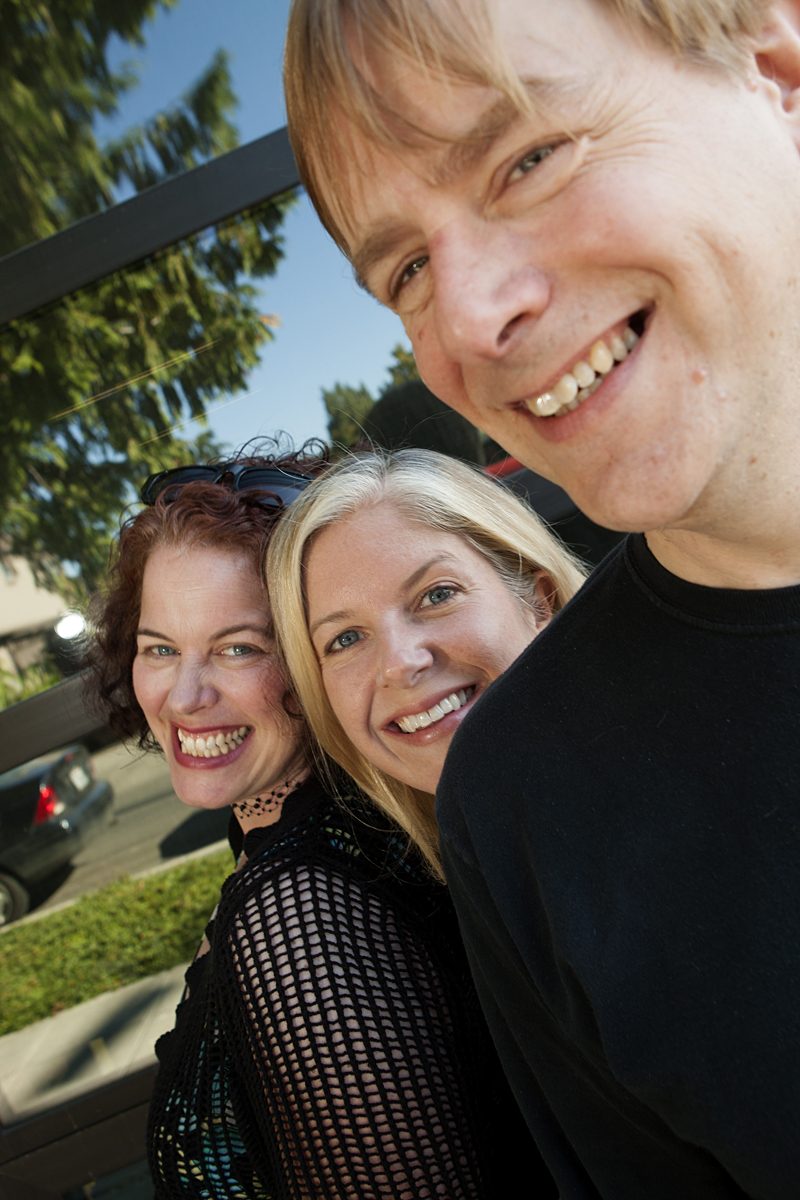My introduction to the extraordinary Endangered Species Project play-reading series came in a whisper. “Don’t tell anybody,” my informant warned. “The theater’s tiny, and they’re at capacity. But you can come.” Anyone familiar with theater marketing knows how rare it is to be told not to talk about something. Still, picturing a stuffy little black box with folding metal chairs, no set or costumes, and overdone oration, I quickly forgot about it. The series was bouncing nomadically among larger venues, but why go to a bare-bones reading instead of a full theatrical production? Plus, ESP was picking pretty obscure plays, which seemed to pile more risk on an already grim-sounding proposition.
The series started in February 2011, but my first visit came four months later—by accident. I was walking around Green Lake with a friend and saw signs for Chekhov’s The Wood Demon at Seattle Public Theater at the Bathhouse. This little-known play about environmental preservation was dismissed even by the playwright himself, so naturally I was curious to see exactly how awful it was. The reading was already underway as I slipped in, yet I was instantly transported by a quality of acting I rarely see on professional stages. The text was indeed lackluster (an anomaly for ESP), but the immediacy and openness cast a spell. The actors roamed the stage as their characters’ urgencies dictated. Without scenery, their inner desires became the landscape. When Peter Jacobs’ character shot himself, he simply closed his eyes, the life draining from his face—infinitely more affecting than a big, staggering death scene. Some of the actors barely glanced at their scripts. It was a revelation of what a reading could be.
The following month, I caught Sidney Howard’s strange, disturbing, and sweet They Knew What They Wanted, riveting despite its dated 1924 dialogue. How did ESP transform the tale of an April/November mail-order romance into a meaningful redefinition of love? I wasn’t sure, but it felt quietly revolutionary.
A few years ago, actor Jeff Steitzer returned from New York to Seattle with a vision: He yearned to resurrect his favorite old plays using top-notch local actors. ESP was thus founded with Cynthia White and Dan Kremer, who shared his nostalgia for the populous big plays of the past—like Juno and the Paycock and Three Men on a Horse. The core company now numbers 11, including Larry Paulsen, Leslie Law, and Mark Anders, plus frequent guests. [Editor’s note: This paragraph has been corrected from its original form.]
“Some of these texts look dusty on the page,” said Paulsen, who last November hilariously read the title role of George Kelly’s 1924 The Show-Off with a laugh that would have made hyenas jealous or horny or both. “But the virtue of this [reading] situation is that we put as little as possible between the audience and the play”—meaning sets, costumes, or an anachronistic/intrusive directorial agenda. Without those filters, the audience is left with pure story. And in the case of The Show-Off, with history, too: The reading was directed by ESP core member Clayton Corzatte, who had played the central role opposite Helen Hayes on Broadway in the 1960s!
Remarkably, ESP only rehearses a play twice—a week before and day of show. The key is “inviting highly skilled actors who can arrive at decisions that make sense quickly,” said Paulsen. Guest artists have included local luminaries like Anne Allgood, John Aylward, and Suzy Hunt, plus newcomers including Christine Marie Brown and Shawn Law. Actors need to budget about 12 hours per reading for rehearsals, some independent study, and the public performance.
Steitzer avows that “reading a play and seeing its potential is a skill unto itself”—and an end unto itself, unlike theaters that use staged readings as a way to “audition” plays to see whether the material warrants producing. Still, Paulsen concedes that some plays don’t work as mere readings—like farces, which rely on action and sight gags. When ESP read 17th-century playwright Aphra Behn’s The Lucky Chance at the Rep last April (in conjunction with the Rep’s production of a play about Behn, titled Or,), it was relevant, but maybe not loved.
Such compromises won’t be a problem in ESP’s new home at North Seattle Community College. First up in the new space is Hobson’s Choice, a 1915 comedy by Harold Brighouse about a tyrannical Lancashire cobbler and his three unmarried daughters. Anders describes it as “incredibly funny, and deeper than you think . . . darker than the Charles Laughton movie based on it.”
Performances are scheduled monthly on Mondays, the theater’s traditional “dark night.” After each reading, you’re encouraged to hang out with the cast to discuss the play. Due to copyright issues, ESP can’t charge admission, but welcomes donations. It’s money well spent to see some of the best acting in town.








